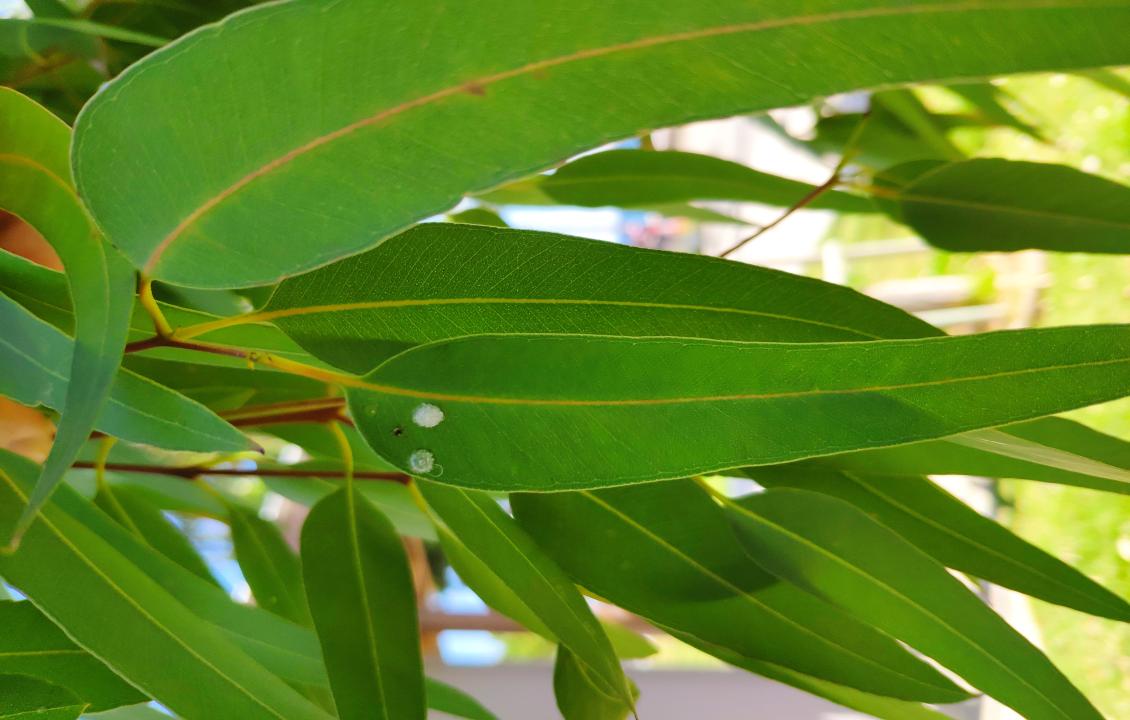Glycaspis brimblecombei
Hold Ctrl whilst dragging to view details of selected occurrences.
Alien:
G. brimblecombei has been found to cause adverse socio-economic impacts in Cyprus, mostly by undermining the aesthetics of nature and that of the urban landscape (Kueffer and Kull 2017; Dept. of Forestry, unpublished data; Demetriou 2021). Since its initial detection on the island in 2015 (Karaca et al. 2017), the species has become widespread (Karaca et al. 2017; Demetriou 2021; Demetriou et al. 2022; Dept. of Forestry, unpublished data). On June 2019, the Department of Forestry issued a statement informing the public about large-scale infestations caused by the psyllid throughout Cyprus (Department of Forestry, unpublished data). The Department also stated that specimens were mostly found on Eucalyptus trees in riverbeds, causing discolouration and shedding of their foliage. Due to the large amounts of honeydew excreted by the psyllid, the Department urged the public to avoid sitting under or near affected trees, while stating that the problem is expected to gradually begin to subside (Dept. of Forestry, unpublished data). At the time, this statement was extensively covered by the media, spreading awareness about the species’ presence and impact. Follow-up material sampling in Limassol (Demetriou 2021), mentioned that G. brimblecombei was observed to “negatively affect the aesthetics of nature […]. Lerps of G. brimblecombei […] filled low hanging branches surrounding public playgrounds and sidewalks. These excretions were sticky and regularly stained the author’s equipment and clothing, especially during late spring and early summer months”. Although Psyllaephagus bliteus Riek, 1962 an alien parasitoid of the species, has also been accidentally introduced to the island alongside G. brimblecombei, it seems not to be able to suppress the population explosions of its host (Demetriou et al. 2022; Boavida et al. 2016) [verbatim from Demetriou et al. 2022]
Speculated (Demetriou pers. comm.)
Karaca İ, Avci M, Güven Ö (2017) Glycaspis brimblecombei Moore (Hemiptera: Aphalaridae), the New Exotic Pest of Eucalyptus in Northern Cyprus. Journal of Agricultural Science and Technology A 7: 552–556. http://dx.doi.org/10.17265/2161-6256/2017.08.005
Demetriou J, Koutsoukos E, Davranoglou L‑R, Roy HE, Spodek M, Martinou AF (2022) First records of the alien Eucalyptus psyllids Blastopsylla occidentalis (Hemiptera, Aphalaridae) from Cyprus and Platyobria biemani (Hemiptera, Aphalaridae) from Cyprus and continental Greece. Travaux du Muséum National d’Histoire Naturelle “Grigore Antipa” 65(1): 25-36. https://doi.org/10.3897/travaux.65.e82873

